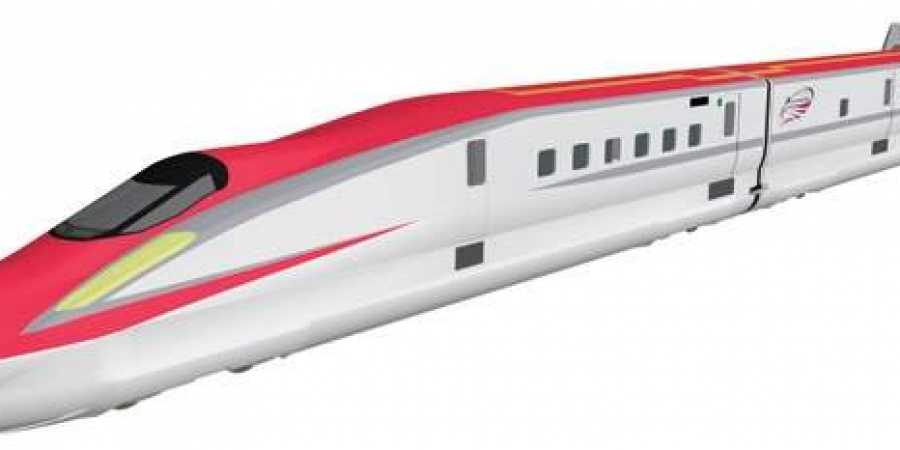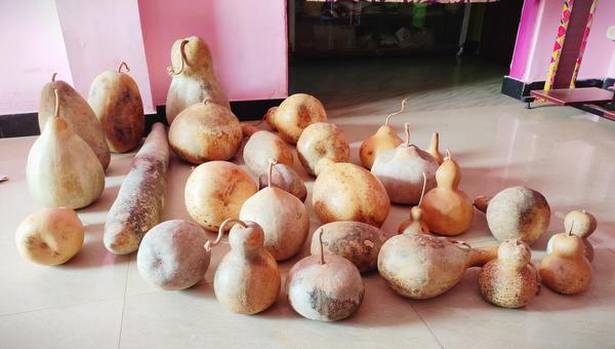Indian team in Hyperloop Pod contest presents prototype
These students devote three-four hours every day after college and now their work has come to fruition as they have raised `1 crore from sponsors and finally built a pod and a 40-metre test track.
Bengaluru :
At an event hosted by Atria Institute of Technology on Tuesday, aerospace engineering student from IIT Madras, Sai Madhav, presented his team’s prototype pod for the SpaceX Hyperloop Pod competition to his audience.
Avikshar Hyperloop is one of the 22 teams out of the 1,600 teams worldwide and also the only team from Asia that has qualified to the finals. It is a group of about 30 students from inter-disciplinary backgrounds who have been working on creating their own pod since September 2017. These students devote three-four hours every day after college and now their work has come to fruition as they have raised `1 crore from sponsors and finally built a pod and a 40-metre test track.
SAE India, a member-driven organisation which acts as a knowledge partner for students and faculty in automotive and aerospace engineering, hosted its second event in its lecture series that deals with aerospace engineering. It also functions as a think-tank and a policy maker. The second lecture was specifically about the Hyperloop, an almost too-good-to-be-true transportation service proposed by Elon Musk, CEO of SpaceX and Tesla. The Hyperloop, if installed, seeks to reduce travel time drastically. It is supposed to be a land-based transportation service where pods, that house passengers, can levitate and zoom through tunnels by having the air pumped out of them in order to create a near-perfect vacuum for greater speed. It boasts of a travel time of just 30 minutes from Bengaluru to Chennai.
Being the main speaker at the event, Madhav’s presentation and video of the only Indian team to qualify for this competition impressed a mixture of faculty, students and heads of the SAE group. He also talked about how the plan for building their pod looked solid on paper but when it came to the actuality of making it, they faced a lot of discrepancies. Being in the stability team, he deals with a lot of mechanical aspects of the pod. During the question-and-answer session, the question of the safety of the passengers was raised as the Hyperloop project has bragged about reaching speeds up to 500-600 km/hour. “Yes, passengers will feel major deceleration effects. All this is new and I can only hope that newer research yields positive results,” he said. J Munirathnam, who is on the Board of SAE India for aerospace, also said the project will have to be built after taking into consideration the degree of g-force that the human body can withstand.
“This is completely new. We have the freedom to explore it. If you look at building a car, parameters have already been established for it. That is not the case here,” Madhav said.
The hype about hyperloop
The Hyperloop, if installed, seeks to reduce travel time drastically. It is supposed to be a land-based transportation service where pods, that house passengers, can levitate and zoom through tunnels by having the air pumped out of them in order to create a near-perfect vacuum for greater speed.
source: http://www.newindianexpress.com / The New Indian Express / Home> Cities> Bengaluru / by Chinmay Manoj / Express News Service / July 11th, 2019
Meet Parameswaran, aeronautical engineer-turned organic farmer
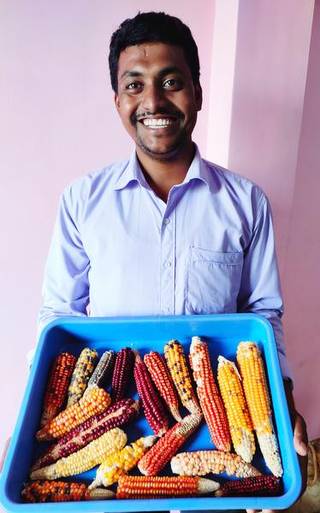
Oddanchatram-based organic farmer A Parameswaran has created a bank of over 300 varieties of seeds of native vegetables and fruits
Patches of dark rain-bearing clouds gather in the far west, masking the lofty peaks of the majestic Anamalai mountains that separate Kerala and Tamil Nadu. The South West monsoon has set in, but the interior Dindigul district of southern Tamil Nadu falls in the rain shadow region, getting only an occasional drizzle and a breeze or two. At the Kuttiyagoundanpudur village near Oddanchatram in Dindigul district, the red ochre soil in A Parameswaran’s six-acre farm is athirst for some moisture. The brinjal saplings are wilting in the harsh sun; baby vegetables take shelter under the skimpy shade of the leaves.
“But my plants will not die as they are native to this region. The drizzle is enough for them to sustain till October when the North East monsoon will bring us rains,” says Parameswaran, an aeronautical engineer-turned organic farmer.
The 28-year-old has been collecting seeds of native vegetables and fruits for the past three years. He now has a collection of over 300 varieties of seeds of different vegetables and has set up the Aadhiyagai native seed bank, from which he provides seeds to farmers in the neighbourhood.
“I grew up watching my parents till dry land and though I graduated in Engineering, my love for agriculture remained intact. That’s why I returned to my village,” says Parameswaran. The pocket around Oddanchatram, despite being arid and devoid of any perennial water source, has emerged as the vegetable hub of the State. The market in Oddanchatram is the largest in Southern India, in terms of the volume of vegetables it sends on a daily basis to a majority of Kerala and some parts of Karnataka. “But that’s all because of production-focused agriculture. Genetically-modified seeds, flush with pesticides and fertilisers are giving the results,” says Parameswaran.
“Until some two decades ago, we never had to buy seeds. We would let some of the yield dry up on the plant itself. And seeds from those vegetables/fruits were used for sowing in the next season. Today, a farmer spends 20 per cent of his investment on seeds. At the Government seed bank, 100 grams of seeds are sold for ₹3,500 and about 150 to 200 grams of seeds are needed for an acre of land.”
Parameshwaran realised the importance of saving native seeds after attending a workshop at Vanagam in Karur, where he was inspired by the ideals of organic farmer pioneer G Nammalvar. “That was also the time when things like Bt brinjal were hot topics.” He went around villages across Tamil Nadu over he past couple of years, speaking to older people, learning about the various vegetables native to specific regions. “I was surprised that I ended up noting down names of about 100 varieties of brinjal alone. A lot of them were already lost and were nowhere to be found. Likewise, there are as many varieties of lady’s finger. Ever seen a pink ladies finger? You can find it in the Kongu belt,” he adds.
“Gradually, I found out some native varieties that people continued to sow in small patches of land either in their backyards or in farms. These were used for family consumption and was not sold in the market. That’s where I collected the seeds from. Now, I encourage every farmer in my village to set aside a small patch to grow native vegetables.”
Parameswaran also sets up terrace gardens and backyard farms for people. “Last month, I set up a native vegetable farm in one cent of land for a friend in Madurai. Even in congested cities, people can grow these native varieties. They don’t need much of any resource. Native seeds are naturally potent, drought-resistant and have high immune levels against pests and diseases.”
“The only reason why native vegetable varieties are not commercially viable in today’s production-result-oriented agriculture is that they are long-standing crops. Winged beans and sword beans are not as popular for the same reason. Some native plants may live for a year and yield only after four months from sowing. There’s one variety of lady’s finger that lives for four years. Whereas, genetically modified brinjal’s life span is only four months and it yields within 20 days and the farmer can keep going in for the next batch of plants in quick succession,” he adds.
Parmeswaran is now in the process of collecting seeds of native vegetables from Karnataka, Kerala and Andhra Pradesh.
For details, visit aadhiayagai.com, facebook.com/aadhiyagaiseedsavers or call 085263 66796
source: http://www.thehindu.com / The Hindu / Home> Life & Style> Homes and Gardens / by A. Shrikumar / July 06th, 2019
09
08
07
The ink never dries here
Flipping the pages of their 50-year-old legacy, the partners of Rathna Offset Printers on Peters Road talk about competition & future of print

The quaint two-storied building of Rathna Offset Printers on Peters Road is hard to miss. Fifty years old and one of the pioneers in printing technology, the company has stood the test of time. It’s evident from how the name has been rooted in customer-centric service and quality at affordable prices until today, in the fiercely competitive print space. It has grown steadily into a 200-strong workforce. Print is alive and so is their business.
Past forward
The family-owned business is currently shared by six partners. Three bothers — B Rajkumar, B Ashok Kumar, B Suresh Kumar — and their children — Nakul Rajkumar, A Aadithya Sharan, and Akshara Suresh Kumar. “My father had five brothers. The eldest one, Rajalingam, laid the foundation stone of what we have today. Around 1968, there was an International Trade Fair at Anna Nagar. He purchased the first single-colour Russian offset machine. After which, he opened a small space in Border Thottam in early 1970. In 1974, he purchased six grounds from an Anglo-Indian in Royapettah, the current space. However, he left the company in 1977,” says Rajkumar.
Chennai :
The brothers are from Sivakasi, known for its printing industry. However, they ventured into this industry after completing their engineering degree in Chennai. “Our hometown is the frontrunner of printing industry. It has a rich legacy and has been functioning effectively for decades. The dry weather makes it conducive for the printing process,” he says.
The company purchased its second printer in 1978. The present partners officially took over the company in June 1985. They purchased their third printer and first multi-coloured machine in 1988. “There were established printing companies when we got into the field. We were new to this and picked up a few tricks from our cousins who were already into the business in Chennai. Our approachable and amicable attitude along with communication skills helped us get orders for textbooks and magazines from 1990. We used to give the quotation then and there.
We learned everything on the field and that’s how we earned the trust of our clients. In fact, we explained the costing and competitive pricing that garnered us patrons, eventually. Our work spoke for us,” he shares. The company has around 800-900 clients and more than 2,000 digital clients. There are 75-90 regular customers. The owners opened another printing and packaging unit in a bigger area at Poonamalle in 1994. The publishing press unit was opened in 2010.
Calendars, diaries, posters, brochures, coffee table books, invitations, envelopes, cards, tabloid and flyers are a few among their range of finished products. “Our main clientele is the digital divisions of the publishing houses and print on demand,” says Aadithya. Every time a new machine is purchased, the employees go through multiple stages of training until they are familiarised with their equipment.
Behind the covers
The sound pre-press, press and postpress infrastructure make this company one-of-a-kind. It’s 5 pm. The offset-printing unit on the ground floor is dingy and bustling with activity. The scent of ink, glue and unused paper fills the air. The sound of huge printing machines running simultaneously is deafening. The colour scheme of inks in all the printers is standard — cyan, yellow, magenta and black. Bundles of paper are loaded and unloaded. Hot and freshly printed sheets emerge out of the machine rapidly and get collected in a basket for the next stage.
On the first floor is the prepress section that is relatively calm and bright. The printed output in various sizes goes through stages of cutting, binding and laminating. They’re put together into textbooks, novel covers and magazines,and given a glossy finish. We notice workers meticulously involved in various stages of production. Heaps of finished products to be dispatched are arranged in corners. The second floor has a space that takes care of web and digital work, and print on demand projects.
They have sheet-fed offset, web-fed offset and digital machines. “Each step is carried out in a specially designed equipment to ease the process. There’s a machine for trimming the edges of a book, one for binding a book and stitching it together, and then the wrappers are manually added. It’s fascinating how every step delivers a perfectly completed product,” says Aadithya.
The company has an advanced set of commercial printers that include sheet-fed machines, saddle- stitching machines, folding machine, knife-cutter and single gelatin printing machine. “This is an unorganised, cost- and labour-intensive industry. From printing to packaging, one has to keep hopping around to different places for the final output.
But our place is a one-stop solution and this is the reason we have loyal customers for years now. There’s business round the clock. We are busy when schools reopen and then there’s one festival or the other. As far as the future is concerned, I think the print industry is flourishing. We need to have more units in our country to develop the industry,” says Rajkumar.
source: http://www.newindianexpress.com / The New Indian Express / Home> Cities> Chennai / by Express News Service / July 06th, 2019
‘Water conservation efforts won us the national award’
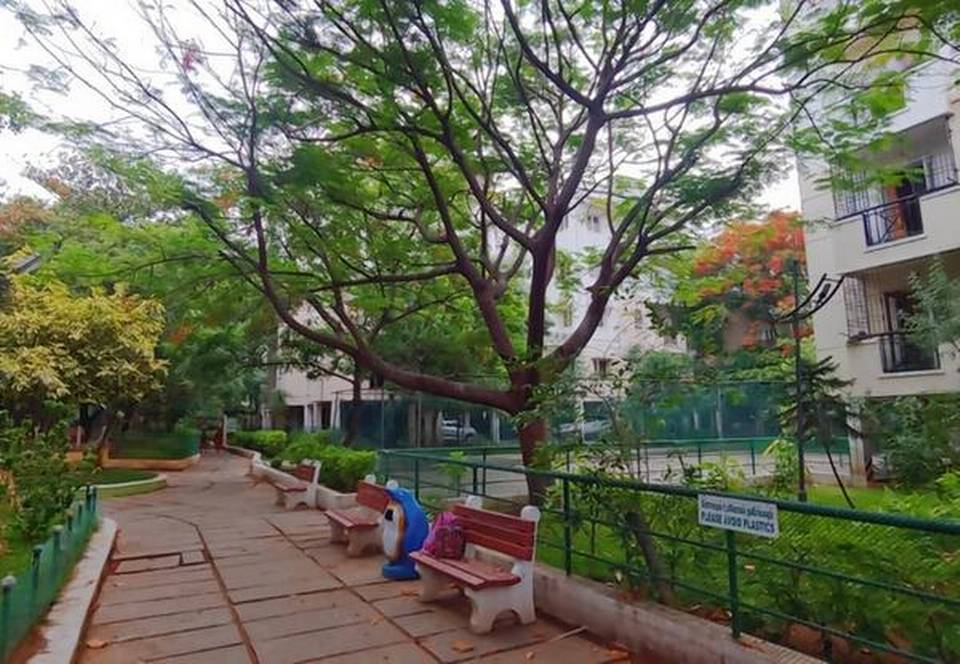
In February this year, Jains Green Acres Flat Owners’Association was declared the second best in water management, among residents welfare associations in the country, under the National Water Awards – 2018. The Award has been instituted by the Union Ministry of Water Resources. The Association received the recognition for its efforts in conserving energy.
For a large community with 684 families, we are well aware that the water needs will be high, but we don’t have to worry about a crisis as we charted our water future even before the plans of the buildings took shape.
Jains Green Acres on Old Dargah Road in Pallavaram was built in 2008. During the construction stage itself, about 300 owners met every two to three months and brainstormed about having a proper rainwater harvesting structure and groundwater recharge system.
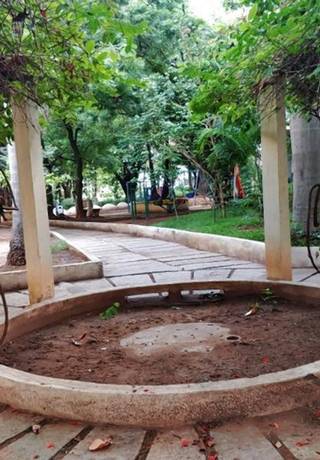
Rooftop rainwater is being effectively harvested at each block with hedges created around each of the 22 blocks and the water being diverted from the terrace to the ground, which allowed for faster percolation of rainwater into the ground.
Water supply from the borewells sunk during the construction of the apartment were found to be inadequate when more residents started moving in and hence, 10 more rainwater harvesting wells with a depth of about 10 feet, were created at strategic locations. These wells helped us tide over the harsh summer season.
The builder had initially provided a sewage treatment plant with a capacity of 2 lakh litres, which was found to be inadequate with the per capita consumption of water.
So, we got the builder to enhance the plant to treat 4.5 lakh litres of water. The treated water was fed to the trees and flowering plants on the campus to boost the groundwater table.
In 2015, the Association decided to install water meters at each house and have the residents pay the bills based on consumption. This single measure to curtail excess consumption of water brought down the usage from about 4.5 lakh litres per day to 3 lakh litres.
(The writer is the president of Jains Green Acres Flat Owners Association)
source: http://www.thehindu.com / The Hindu / News> Cities> Chennai / by Sunil Kumar / July 02nd, 2019
